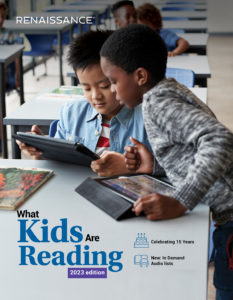April 20, 2017
A visit to San Antonio, TX
San Antonio in April with 70-degree weather. This past month, over 7,000 educators from across the country converged in one place to learn new ways to get students excited about mathematics. Life could not have been better!
From April 5–8, I had the pleasure of attending my seventh National Council of Teachers of Mathematics (NCTM) conference in San Antonio, TX. NCTM is my absolute favorite conference because, every year, I come back even more inspired and motivated to help students discover the joys that stem from mathematics. As usual, the conference organizers put together a substantial lineup of amazing speakers. As I reviewed the program schedule, I agonized over which sessions to attend. How can I be at all of them? There were so many math rock stars, such as Jo Boaler, Dan Meyer, Peg Smith, John Urschel, and Dylan Wiliam. I ended up taking Dan Meyer’s advice to “sleep when you’re dead” and attended his session, which started promptly at 8 a.m. on Saturday morning. I was reminded of his statement, “Math is power!” all day long.
From the NFL to a PhD
One of the most anticipated sessions was by John Urschel, an offensive lineman for the Baltimore Ravens AND a PhD candidate in mathematics at MIT. As a child, his mom “tricked” him into doing worksheets and puzzles. Math became something he not only loved but also needed to do. It taught him to be resilient and flexible and to make better decisions. (To learn more about another well-known athlete/mathematician, check out my interview with Olympic gold medalist Maya DiRado from this past fall.)
I found the Q&A after John’s presentation particularly interesting. One educator brought up the fact that there are very few African Americans with PhDs. John mentioned, “You don’t see mathematicians that look like me.” He wanted to focus on inspiring all children to become mathematicians, and he encouraged educators in the room to find specific examples of people who have done amazing things in math. (To get started, check out our free eBook.) Another educator asked him, “What do you say to those who hate puzzles?” He replied that life is nothing but puzzles and challenges. If you don’t like them, you should at least be trained in solving them.
Problem or puzzle?
Speaking of puzzles, I attended the ever-comical Edward Burger’s session on thinking and creative puzzle-solving. He challenged us to stop referring to “math problems” as such because they are truly puzzles. Besides, what child loves problems? There aren’t English problems or social studies problems. Here are some more of his great insights:
- If you ask someone, “Do you understand ___?”, what goes in the blank doesn’t really matter because it is never a simple yes or no. Instead, Burger talks about understanding as a spectrum. We’re all at different levels of understanding of different things, but you can always acquire a deeper understanding of something. It is important to understand the simple things deeply because it will open worlds.
- The power of effective failure is when you fail and do not leave it until new insights have been revealed.
- There is no greater teacher than one’s own mistakes.
A case for making mistakes
Dylan Wiliam, one of the foremost experts in formative assessments, explained why formative assessments should be a priority for every school. “You remember things better when you get things wrong.” Mistakes should be celebrated! But we shouldn’t just leave them alone. It is our role as educators to guide students to correct their mistakes so they can move deeper into the spectrum of understanding. He also recommended that when we conduct formative assessments, we do not need to record every item. This makes a more favorable environment for students to make mistakes and learn from them.
It’s the task that matters
When I saw Peg Smith, the guru of mathematical discourse, at the author’s presentation area in the Exhibit Hall, I gave her a big hug. Last year, I wrote about my experience trying to get into a Peg Smith session. Her session was so full that my only option was to hear her nuggets of wisdom through the doorway. She advised educators to be very clear about what they want their students to learn about mathematics (slope is not a goal!) and that mathematical discussions need to be based on high-level, cognitively demanding tasks.
Share your NCTM experience with us!
Did you attend NCTM? What other great sessions did I miss? What were your key takeaways? Let us know in the comments below!
P.S. If you’re looking to attend your first NCTM conference, check out the grants NCTM is offering to participate in next year’s annual meeting in Washington, D.C.
https://www.nctm.org/Grants-and-Awards/grants/Future-Leader-Initial-NCTM-Annual-Meeting-Attendance-Awards/

